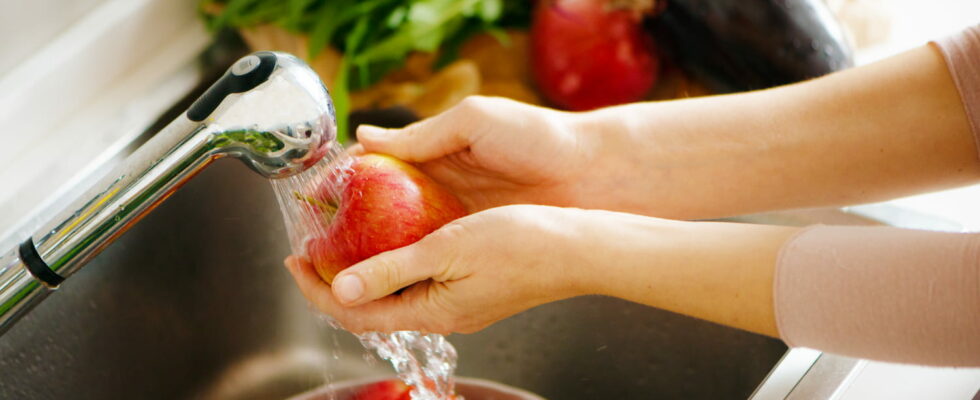A very simple reflex to adopt.
Products of our daily life, pesticides are used in agriculture for the treatment of crops. Handled in a strictly regulated framework, they are however often associated with potential dangers for our health. In 2018, theHandles had also noted several contaminants in fruits and vegetables, without them necessarily being risky for the consumer. Thus, we often hear that it is important to wash our fruits and vegetables before eating them. Unfortunately, this could not be enough according to an American study.
The American Chemical Society (ACS) team’s primary goal was to improve the detection of traces of pesticides in food. To do this, the scientists used a technology called surface-enhanced Raman spectroscopy (SERS). It involves detecting chemicals using nanosheets that amplify the signals of molecules using a laser beam. The patterns created by this laser represent molecular signatures, which allow scientists to identify the compounds present in the fruit or vegetable.
In the tests, researchers sprayed the pesticides thiram and carbendazim, alone or together, on apples. According to a study published in 2022, prolonged exposure to thiram in chickens had notably led to damage to the heart, with inflammation, oxidative stress and damage to heart cells. As for carbendazim, a study published in 2023 had observed toxicity in various animals, affecting the embryo, reproduction, development and the blood system.
After letting the apples air dry, the researchers washed them to mimic our everyday practices. According to the results published in the journal “Nano Letters“, SERS detected pesticides on apples, “even if the chemicals were present at low concentrations”according to a statement. The team detected pesticide contamination through the fruit’s skin and in the outermost layer of the pulp. Washing fruits and vegetables alone may therefore not be enough to prevent pesticide ingestion. But is it safe to continue eating our fruits and vegetables?
According to scientists, pesticide contamination would decrease when the apple skin was removed. They therefore suggest that it would be necessary “peel them to remove potential contamination from the skin and outer pulp.” Think about that the next time you want to enjoy your apple.
